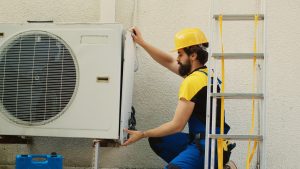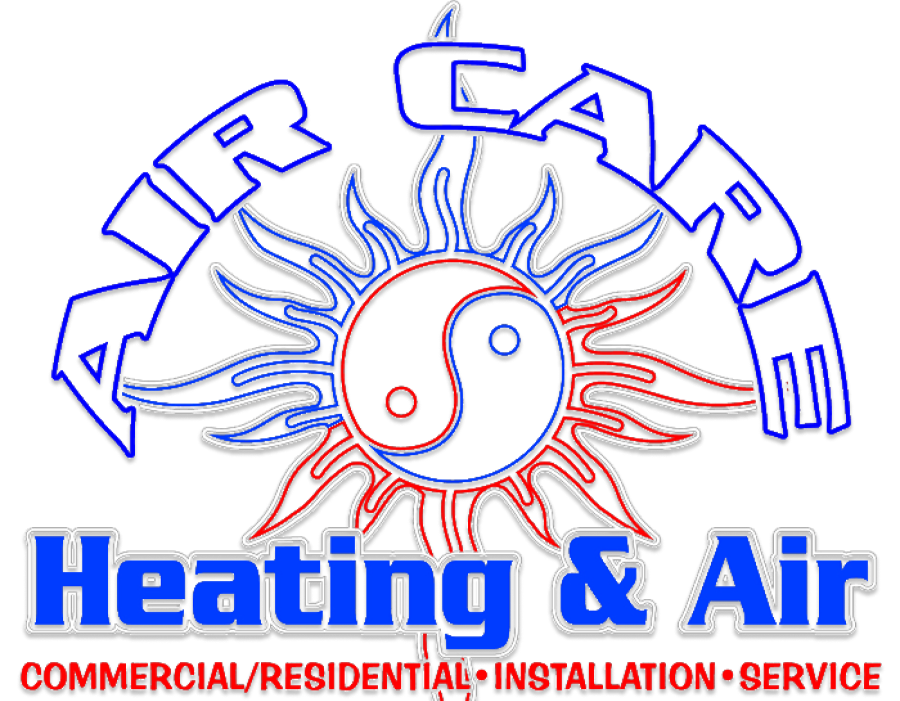
Learn about the importance of regular HVAC system upkeep to prevent breakdowns, extend system lifespan, and save on costly repairs.
Preventive maintenance for your HVAC system plays a crucial role in keeping your indoor environment comfortable and energy-efficient. Whether you rely on your system for heating or cooling, regular upkeep is essential. In this post, we explore the steps to ensure that your system is running at peak performance year-round, how to identify early signs of trouble before they turn into expensive repairs, and the benefits of creating a maintenance schedule. We’ll also dive into the importance of HVAC maintenance and offer practical tips to avoid costly breakdowns.
Why HVAC Maintenance Matters
HVAC systems, just like any complex machine, require care to function optimally. Without proper maintenance, your system can suffer from reduced efficiency, increased energy bills, and unexpected failures. Here’s why maintenance should be a top priority:
- Extend system lifespan: A well-maintained HVAC system can last significantly longer than one that’s neglected, saving you money on early replacements.
- Improve energy efficiency: Regular servicing helps your system run at its best, reducing the energy consumption and lowering your utility bills.
- Enhance indoor air quality: Clean systems prevent dust, allergens, and mold from circulating through your home, improving air quality.
By investing in preventive maintenance, you can avoid the inconvenience and high cost of emergency repairs, while also enjoying better comfort and energy savings.
Key Maintenance Practices for Your HVAC System
Regular maintenance involves several important practices that contribute to the health and efficiency of your HVAC system. Here are some essential tasks that should be included in your routine:
1. Cleaning or Replacing Air Filters
One of the simplest yet most effective HVAC maintenance tasks is cleaning or replacing your air filters. Over time, filters become clogged with dust, dirt, and debris, which can restrict airflow and reduce your system’s efficiency. Dirty filters can also lead to higher energy consumption and cause more stress on system components.
Tip: If your house is in a dusty environment, you may need to clean or replace your filters more frequently. Always check manufacturer filters and their indicated air replacement schedule.
2. Cleaning Coils and Condensers
Both the evaporator and condenser coils in your HVAC system play a vital role in heat exchange. Dirty coils can accumulate dirt, which reduces their efficiency and can cause the system to overheat or break down. Regular cleaning of the coils can prevent these issues and extend the lifespan of your unit.
- Evaporator coils: These should be cleaned annually to ensure proper heat absorption.
- Condenser coils: These should also be cleaned at least once a year, especially if your HVAC system is located outdoors.
3. Inspecting Refrigerant Levels
Refrigerant is essential for the cooling process in your air conditioner. If the refrigerant level is low, it can cause the system to work less efficiently. The coils can freeze up, leading to higher energy bills and poor performance. A qualified HVAC technician can check refrigerant levels as part of a regular inspection.
4. Lubricating Moving Parts
HVAC systems have many moving components, such as fans and motors. These parts can experience wear and tear over time. Lubricating these mechanical devices reduces friction and prevents overheating, helping your system run more efficiently and reducing the risk of expensive repairs.
5. Checking Electrical Connections
Loose or frayed electrical wiring can lead to system malfunctions and costly, recurring energy issues. A technician should inspect all connections as part of your inspection. A routine inspection of the ducts can also help identify any issues early on, preventing costly repairs or replacements.
The Benefits of Preventive HVAC Maintenance
Routine HVAC maintenance offers a range of benefits that go beyond just avoiding repairs. Here are some more compelling advantages of keeping your system well-maintained:
1. Cost Savings on Energy Bills
A well-maintained system operates more efficiently, reducing the amount of energy needed to heat or cool your home. This results in lower monthly energy bills, letting you save money over time. By addressing small issues early, you prevent your system from working harder than it needs to.
2. Fewer Unexpected Breakdowns
One of the most frustrating aspects of owning an HVAC system is dealing with sudden breakdowns, especially during extreme weather. Preventive maintenance helps identify issues before they escalate, so you can enjoy peace of mind knowing you’re not at risk for expensive repairs when hot or cold conditions trigger breakdowns.
3. Improved Indoor Air Quality
Over time, dust, dirt, and debris can build up inside your HVAC system. This can negatively affect the air quality in your home, potentially aggravating allergies or respiratory issues. Regular air filter maintenance and cleaning help ensure your system remains clean and ensure the air in your home is healthy.
4. Increased Comfort
When your HVAC system is properly maintained, it provides more consistent climate control for heating and cooling. No more hot spots in summer or cold drafts in winter! Regular maintenance ensures that your system is balanced and performing at its best, providing a higher level of comfort for you and your family.
Creating a Maintenance Schedule
Establishing a regular HVAC maintenance schedule is the best way to ensure that your system gets the attention it needs before problems arise. Here are some practical steps to help you stay on track:
1. Follow Manufacturer Recommendations
Check your HVAC system manual for recommended maintenance schedules. Most systems benefit from a professional inspection at least once a year. If you have a ductless mini-split system, biannual checks may be required to maintain efficiency, especially during the hottest and coldest months.
2. Schedule Season-Specific Tune-Ups
To get the most out of your HVAC system, schedule a professional tune-up before the start of each season. This ensures your air conditioning system and furnace are in full operation before heating or cooling is needed. Seasonal tune-ups help it meet the demands of the upcoming season.
3. Consider a Service Agreement
Many HVAC companies offer service agreements that include regular tune-ups and inspections. Often at a discounted rate, service plans are a great way to keep on top of your maintenance needs and to minimize any costly surprises.
4. Monitor System Performance
Even between inspections, it’s essential to keep an eye on your HVAC system’s performance. If you notice any unusual noises, inconsistent temperatures, or increased energy consumption, contact an HVAC service pro for a professional inspection.
Recognizing Early Signs of HVAC Issues
Sometimes, problems with your HVAC system can’t be prevented with routine maintenance alone. However, recognizing the early signs of trouble can help you address issues before they become costly repairs.
Here are a few red flags to watch for:
- Unusual Noises: Grinding, squealing, or rattling noises may indicate a mechanical issue.
- Warm Air from the AC: If your air conditioner blows warm air, there may be a refrigerant leak or a malfunctioning compressor.
- Increased Energy Bills: A sudden spike in energy usage can indicate that your system is working harder than necessary, possibly due to a clogged filter or dirty coils.
- Weak Airflow: Poor airflow can result from clogged ducts, blocked debris, or a malfunctioning fan.
If you notice any of these issues, don’t wait for the problem to worsen. Call an HVAC professional to diagnose and fix the issue promptly.
Conclusion
Investing in regular HVAC maintenance is one of the smartest decisions you can make as a homeowner or business owner. By keeping your system well-maintained, you can avoid costly repairs, extend the lifespan of your equipment, and ensure a more comfortable indoor environment. Whether you work with a local HVAC service company or take care of a few at-home preventive tasks yourself, proactive care is the key to long-term savings and system reliability.
Air Care Heating & Air specializes in keeping your HVAC system running smoothly. With over 12 years of experience in residential and commercial HVAC service, we provide high-quality preventive maintenance at an affordable price. Reach out to us today at (805) 701-1296 to schedule your preventive HVAC maintenance and enjoy lasting peace and comfort all year long.

Hi, this is a comment.
To get started with moderating, editing, and deleting comments, please visit the Comments screen in the dashboard.
Commenter avatars come from Gravatar.